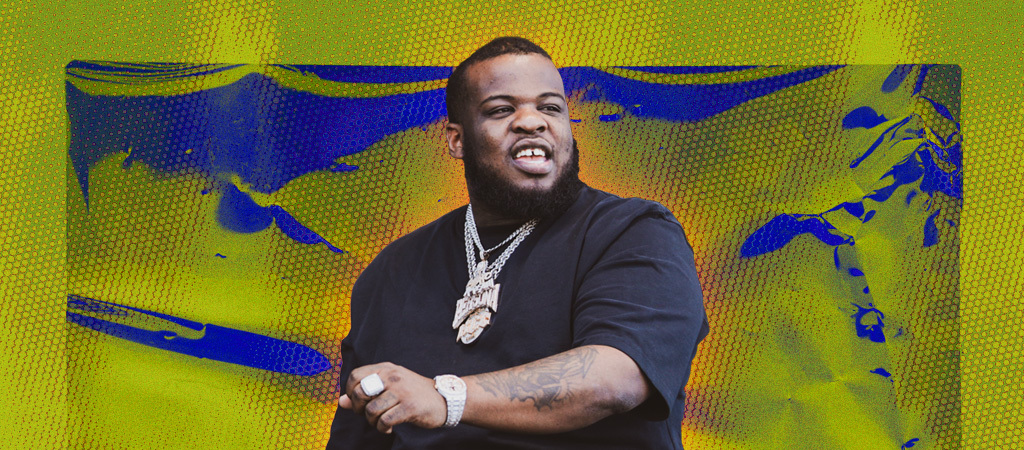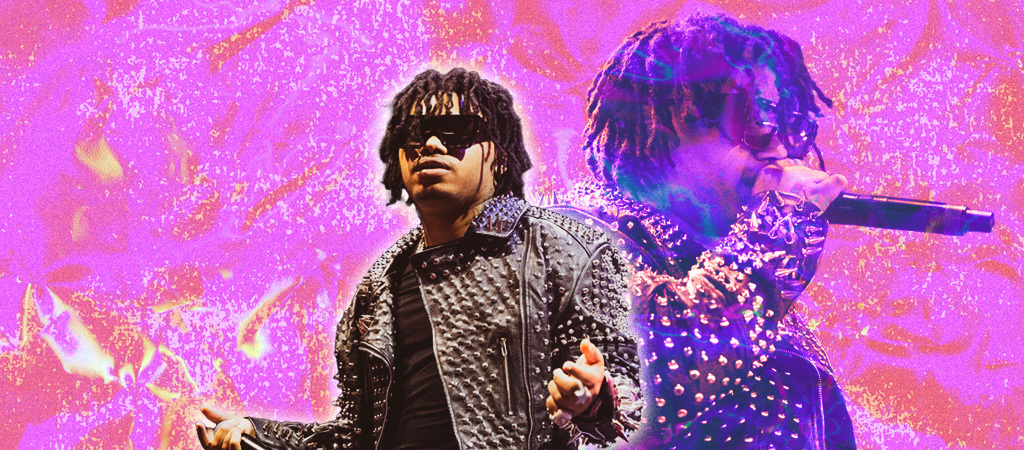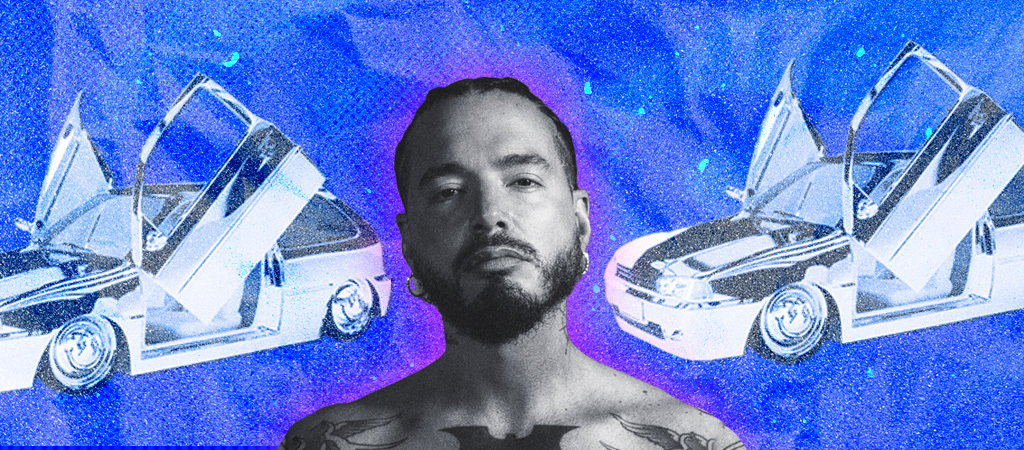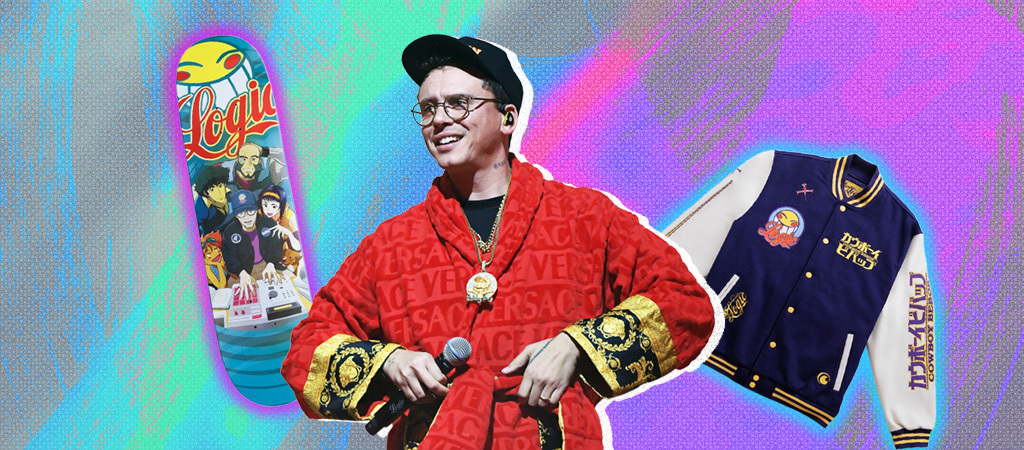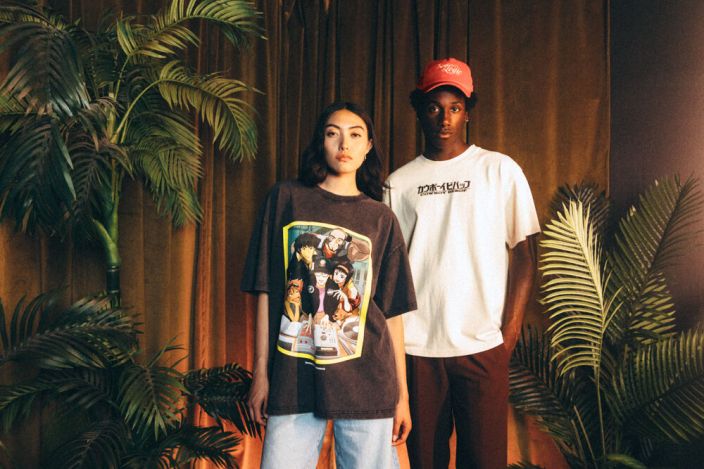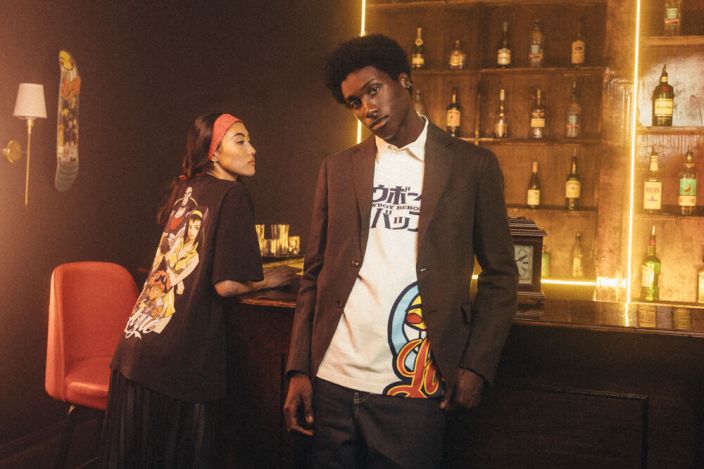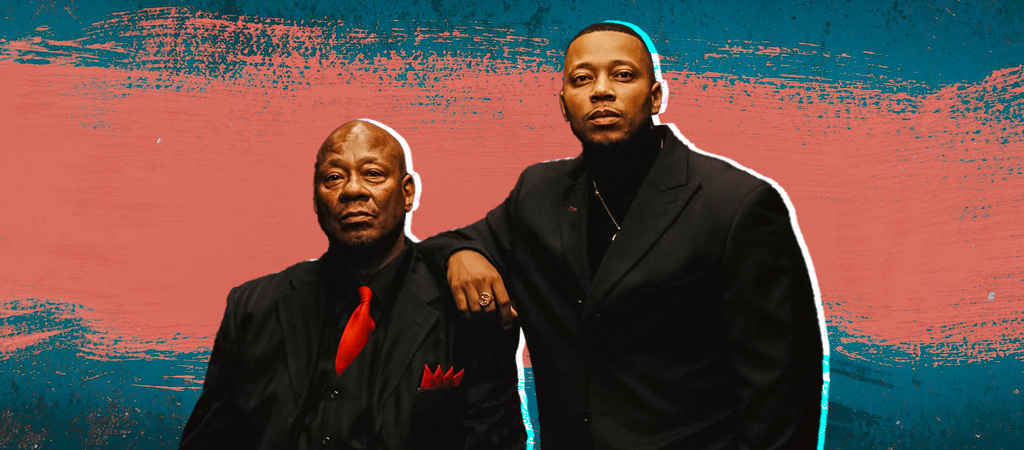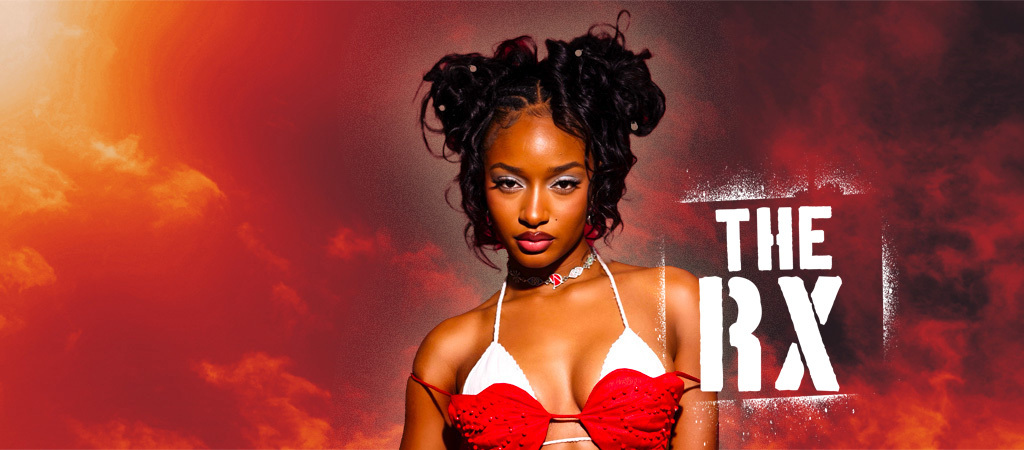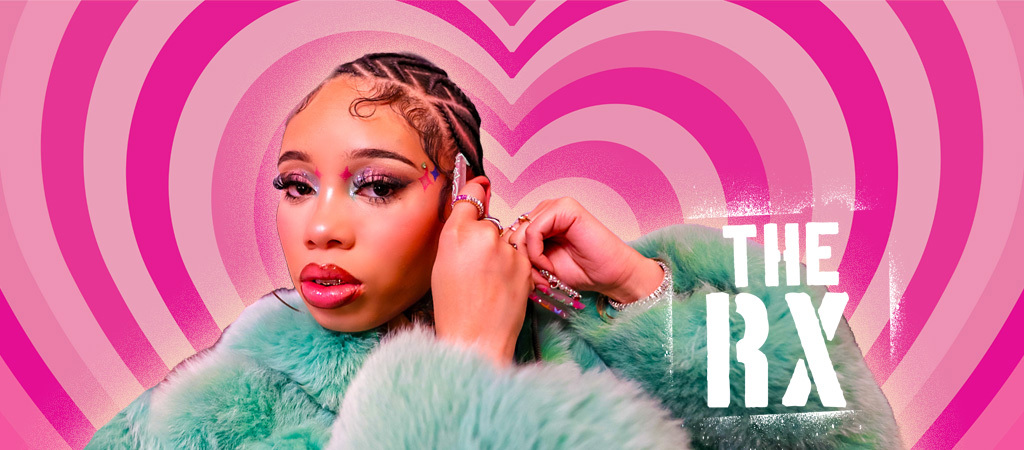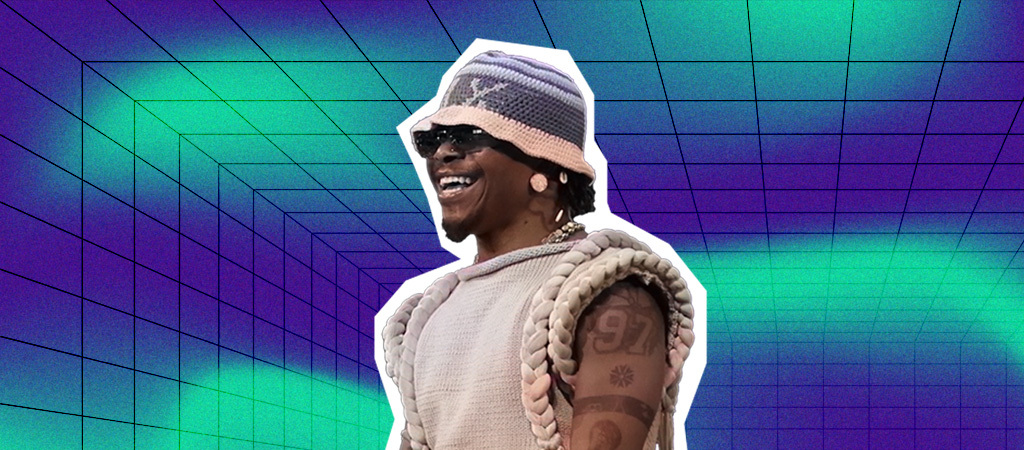
Everything changed for Oxlade in 2022. The Nigerian afrobeats singer, who already had quality records in his discography, climbed to heights that few afrobeats artists have seen. That year, he released his “Ku Lo Sa” single with COLORS Studios where it instantly went viral. Today, more than two years after that song’s release, “Ku Lo Sa” tallied over 200 million views on YouTube combined thanks to the COLORS Studios performance video, the song’s official music video, and the song’s remix video with Camila Cabello. On Spotify, the numbers are even higher with the three version of “Ku Lo Sa” reeling in over 400 million streams.
Thanks to “Ku Lo Sa,” Oxlade and his music reached corners of the world previously unimagined to him. He joined artists like Wizkid, CKay, and Rema on the shortlist of afrobeats artists who released absolute smash hit songs over the past few years. “Ku Lo Sa” meant a brand new era for Oxlade and he took full advantage of hit to tell a new story and a new goal on his debut album Oxlade From Africa.
With the album out now and sure to end up as a top afrobeats release by year’s end, Uproxx caught up with Oxlade to talk about his Oxlade From Africa debut, the globalization of afrobeats, telling African stories, and more.
How did you decide on the direction, sound, feeling — everything — for this album? Did it take a while to settle on a plan or you knew all along that your debut would sound like this?
When “Ku Lo Sa” went crazy viral, I was like, “Yeah, goddamn, it’s time for me to drop an album.” I shot myself in the foot when I said I’m going to name the album Oxlade From Africa. Shout to Spax, he’s the Quincy Jones to my Michael Jackson, he’s my executive producer. I set him a playlist [with] like 20 songs, I was gassed, I was like, “Yeah bro, I killed them,” and then he goes, “This is not the album,” and I lost all the excitement I had for the project. He told me that if I’m going to name the project Oxlade From Africa, I have to make a project that has the aesthetics of Oxlade from Africa and not just naming a project because you feel like naming it and dropping different sonics that contradict the name of the project. So, I had to incline myself for more classic songs that I listened to growing up, and then just blend them with modern-day afrobeats.
Oxlade From Africa is truly a global album with features from people all over the world. Dave, who’s Nigerian and living in the UK. Popcaan in Jamaica, Fally Ipupa in Congo, Wande Coal & Flavour in Nigeria, and Sarkodie in Ghana. Why was it important for you to have different cultures play a part in your debut album?
The thing is if I named the album Oxlade From Lagos or like Lagos To The World it would have been easier for me, but I set myself up and I named the album Oxlade From Africa, so I have to bring African elements from all sides of the Earth into it. Like Fally Ipupa representing the French African, people don’t even know that we have more French-speaking African countries than English-speaking African countries. That’s a very untapped market for even Nigerian afrobeats. “Ku Lo Sa” broadened my eyes to different markets that I didn’t even understand or know I needed. This ton of success presented new perspectives on how I create music and who I create music for.
As much as you are introducing yourself officially with your debut, this album’s title also lets me know that you’re also trying to paint an image of Africa to your listeners. What did you hope they saw and heard about the homeland?
That’s a very good question. As much as we’re scared of the Western world narrating or giving the afrobeats narrative, we also need to be the ones telling the stories. We also need to be the ones countering any fallacy or lies about the genre and try and protect [it]. We have to also give them quality right from the source. For me, it’s a legacy thing, not a trend thing. When you hear the name Oxlade, the standard of music has to be A1. No mediocre — experiments are allowed, but it has to be intentional. I’m also trying to build a legacy for myself with my sonics and also with the brand. I evolved from Boy Ox, which was a boy, to Oxlade From Africa. With every album, new sides and new phases of me will show.
What is one thing that you wanted to showcase for fans through the music on this album that you may not have done on previous songs and projects?
Yeah, definitely. I had a song on the album called “Olaitan.” I feel like the song should have come out earlier because it’s prophesying my mantra [and] what I live by because that’s my name and it means unending wealth and favor from God. This album is also an introduction album and a new update for those who have already been tapped into the brand Oxlade. It also serves as a reminder to those that believed in me, and to give them a reminder to why they believed in me from the jump. It’s reality music, it’s so penetrating, [and] it’s relatable. Songs like that, with the thanks of the platform the album is giving me, would be really, really, really useful in the future. I also do impactful music, like conscious music, like “Blessed” with Popcaan. It’s not every time you gotta sing about ass-shaking checking. Occasionally, we have to give thanks to The Most High. Albums like this give me space to be able to chip in songs like that.
This album is another entry of the successful highs you’ve experienced globally, going back to “Ku Lo Sa” blowing up. How did the massive success of that song confirm or change anything about your approach as an artist and the next steps you took?
I feel like that moment quenched and silenced every doubt I had in my future, my brand, and my craft. We artists, we’re also critics of our art, but ground-shaking success stories like that just make you fearless. Now, I’m just doing this because I love it and I want to do it. Before, I was probably trying to prove people wrong, but the only person I should be proving wrong is myself by outdoing myself. So like, you know. It changed my perspective on what I should be focusing on. I don’t know how to explain it, but that’s literally what is going through my head right now. It gave me the trajectory towards how I should even name the songs on my album. I’m trying to make an African album. I’m not trying to steal anything from a borrowed language that English gave us. So when you hear me say “Ku Lo Sa”, I’m not trying to say “closer.” If you hear me say “Asunasa,” I’m trying to say “as soon as I,” but in an African form. So “Ku Lo Sa” actually affected the entire trajectory and aesthetics of the album. It gave me the whole picture of what or how I should create or carve out some important details of the album.
What do you enjoy most about writing love songs? There are many on this album, like “Intoxycated,” “IFA,” and “Ovum,” and love songs often end up being your best outputs.
I just feel like humanity needs more love and I’m just aiding in preaching the gospel of love because greed is the downfall of our race, if I’ve been honest. If you can share love amongst each other, it could be through songs [and] it could be through good days. As long as you’re preaching love, you’re helping humanity. Also, I love, love. I was raised in love. My family raised me with love and I learned that love is as important as the air we breathe. So, it might be 75% of what you hear me think about because I’m pushing a course to heal humanity. In as much as I could be in realms where I want to sing about violent stuff, I don’t think that is how I want to announce my craft or my debut into the album world. That’s why I’m centering on love and positivity.
Your love for music and your faith in success and prosperity going forward are very obvious when listening to your songs. Have there been moments where that love and faith weakened, and even in those moments, what pushed you to keep it alive and strong?
I feel like every human has downtimes [and] every human loses faith. As far as commitment is concerned, anything you’re committed to will make your emotions flow into it because challenging times are definitely bound to come. There’s this mindset that I have, it’s called: the bigger the level, the bigger the devil. You can’t be overly ambitious and not expect obstacles to come your way. You just have to be fixated on the positives and improve from your mistakes because mistakes are the best lessons. They’re the best teachers. These downtimes actually inspired me to go harder and looking back now at previous episodes, it even gave me more reason to not be scared of whatever challenges I might be facing now.
With this album as your first block in your legacy, what do you hope or want your legacy to be in the afrobeats space?
The legacy already started because if we’re looking at it from all human perspectives, I’m not meant to be where I am today because where I was coming from, people who have that bravery of guts or an unending urge for success, they’re so comfortable. So, having to take out time to do my craft and still go for my dreams, it’s a legacy on its own. Having people like Wizkid, Davido, [and] Burna [Boy] do it right before us and show us how it’s meant to be done, and then passing the torch [and] legacy to us, it’s like a full cycle. It’s a lineage of greats You just have to uphold your own destiny and fulfill it. For me, where I envision myself or what I want my music to do to humanity is heal them. That’s always been my whole purpose. There was a time my profession on my Instagram bio was “doctor” and people would ask me, “Why would I call myself a doctor?” My purpose for doing music is to heal souls. I feel like melodies touch parts of our body that X-ray scans can’t even see, which is the subconscious. Music heals people, music has stopped people from committing suicide, it’s that powerful. People don’t deep the power of art itself. I just feel like my sole purpose to humanity and music is to make songs that humans need.
What is one thing that you hope your listeners, especially the ones who aren’t new to the Oxlade experience, take away from listening to this album?
They were right all along. They invested in the stock and it wasn’t the wrong move. It’s just more bragging rights for them [and] when they defend me. This is all I make music for, to make people happy, to make people that always believed in me prouder of me, to heal more souls, to change more people’s mindset about human music or African music generally, the best way I can. So help me God.
Oxlade From Africa is out now via Troniq Inc./Epic Records/Sony Music Entertainment. Find out more information here.

